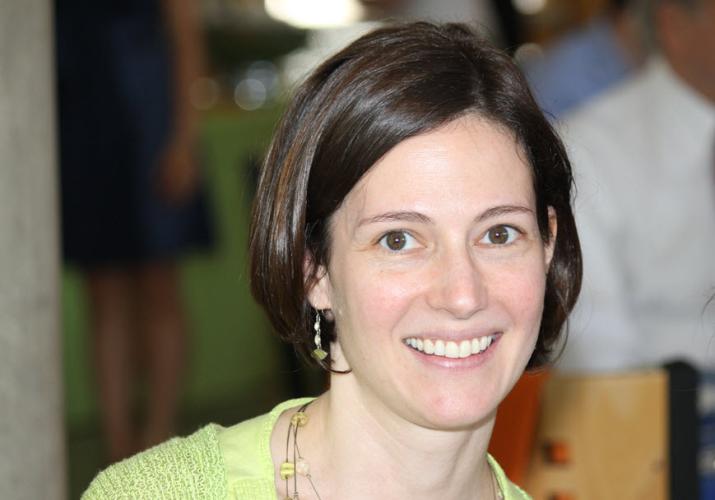According to psychiatry and global health professor Christina Meade, current HIV prevention interventions have had limited results in reducing sexual risk behaviors among drug users. Through research funded by her new $2.4 million Avenir Award, granted by the National Institute on Drug Abuse (NIDA), Meade hopes to change this.
Her vision is to lay the groundwork for devising a novel HIV prevention strategy that will help decrease the risky sexual behaviors common among drug users that often lead to HIV transmission.
Avenir Awards Support Innovative HIV/AIDS and Genetics Studies
Meade was one of six recipients of the newly-developed Avenir (“future” in French) Awards. The program supports early-stage investigators who propose highly innovative studies in one of two areas: (1) substance abuse and HIV/AIDS and (2) genetics or epigenetics of substance abuse.
The substance abuse and HIV/AIDS arm of the program specifically supports research approaches for improved prevention and treatment and, ultimately, eradication of HIV within substance-using populations infected with or at risk for HIV/AIDS.
Understanding Decision Making Processes May Be Key to Prevention
At the heart of Meade’s research is the question, “How do drug addiction and HIV infection affect decision-making processes related to risky sexual behavior?”
In the past, she and her colleagues have explored this question in laboratory settings using case-control designs, which have demonstrated the adverse effects of drug addiction and HIV infection on neurobehavioral functioning. However, these studies have been limited in predicting HIV risk behaviors in the real world.
This five-year project will enable her to investigate the real-time effects of drug use—particularly stimulants such as cocaine and methamphetamine—on decision making in both HIV-positive and HIV-negative individuals.
Meade Will Use Respondent-Driven Sampling and Mobile Health Technologies
Meade will use respondent-driven sampling (RDS) to recruit approximately 200 cocaine users, both HIV-positive and HIV-negative, from the Durham, North Carolina area. Drug users are a hard-to-reach population with multiple barriers to participation in biomedical research, contributing to ongoing health disparities. RDS engages the target population in the recruitment process by asking participants to invite their peers to participate in the study. Both the “recruiter” and his or her peer receive incentives for participating.
Meade and her colleagues used RDS in a recent study in South Africa involving methamphetamine users and felt the technique was particularly useful in helping to penetrate a disenfranchised population that tends to be reluctant to join lab-based studies. They enrolled 360 active methamphetamine users within six months, nearly tripling their enrollment target. She hopes to transfer that success to this project, which will engage a similar population.
Meade will use mobile health (mHealth) technology to assess cognitive functioning and risk behaviors in real-time in natural settings. Participants will use a smartphone to record daily drug use and HIV risk behavior and complete in-the-moment assessments of decision making, drug state (e.g., craving, intoxication) and context (e.g., setting, social situation).
In addition, Meade will conduct tri-monthly lab-based assessments of neurobehavioral functioning over one year to capture fluctuations in drug use, decision making, and HIV risk behavior.
“This project is exciting to me because of its potential to inform new models of HIV prevention that directly target the mechanisms underlying risky sexual behaviors in drug users,” said Meade. “To reduce these behaviors—and to ultimately achieve an AIDS-free generation—we need to understand how this population makes decisions related to their health. I believe this study will provide valuable insights into this question, improving translation to novel HIV prevention strategies that more effectively impact behavior change.”
Learn more about the Avenir Awards program.


